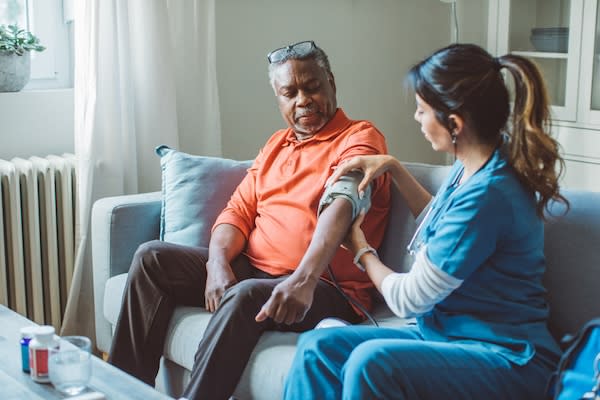Medical screenings every woman should have
To stay on top of their health, women and their health care providers should monitor a variety of the body’s systems, including blood, bones and tissue. The screenings change as a woman gets older, but all are intended to help guard against unseen changes that can threaten her health.
Women are familiar with mammograms, Pap smears and pelvic exams, but it’s worth remembering why they are so important.
A mammogram, in which the breasts are pressed between sheets of glass and X-rayed, is one of the best ways to check for the presence of cancer cells. While there has been much back and forth about when and how often women should have such screenings, the American Cancer Society suggests starting annual exams as early as age 40 and no later than age 45 for women at average risk for breast cancer. After age 55, if they face average risks, they can decrease to every other year. 3D mammography, the latest advance in breast imaging, is transforming breast cancer detection by offering a superior mammogram for all breast types.
A Pap smear is a screen in which cells are extracted from the cervix and examined for the presence of cancer cells, which provides an earlier indicator of cervical cancer. The U.S. Centers for Disease Control and Prevention recommends women start getting screenings at age 21. Women can also get an HPV test, which looks for the virus that can cause cell mutations.
A pelvic exam, in which a health care provider examines a woman’s reproductive organs, can detect early signs of vulvar cancer, as well as check for sexually transmitted diseases.
Everyone should have their blood pressure and cholesterol levels checked periodically. These provide important indicators of your risk for a heart attack or stroke. You should have your blood pressure checked at every health care appointment, and even more frequently if possible. To learn more, ask yourself: Do you have high cholesterol? Do you know what to do about it?
A blood panel can also measure your blood glucose levels, an important indicator for anyone with or at risk of diabetes and heart disease.
Rates of thyroid cancer are rising and women are disproportionately affected. Women and their health care providers should watch for masses that form in the throat or neck, and should have their thyroid checked during blood tests. Especially for women: Answers about thyroid cancer.
Skin cancer is the most common kind of cancer and often becomes more prevalent as you age. Fortunately, checking for it requires no special equipment. You, your family members and your health care provider should be watchful about new growths on your skin and seek medical care if you notice any of the symptoms of skin cancer.
People with no family history of colorectal cancer should schedule a colonoscopy by age 50. The disease also afflicts people younger than 50, but most cases occur as people get older. Recognize that 80 percent of cases occur in people with no family history. There are other kinds of tests, but a colonoscopy is most effective, and it allows the physician to remove any polyps found in the course of the exam.
When women reach the age of 65 and are at increased risk of a bone fracture, it’s a good idea to get a bone density exam, according to the U.S. Preventive Services Task Force. Similarly, older adults should have a dental exam each year, because it may provide the first signal of osteoporosis.
And finally, pay attention to your and your loved ones’ emotional health. Depression is a treatable medical condition that unfortunately affects many older adults. But know that depression is not a normal part of growing older. Talk with your health care provider if you feel deeply discouraged or hopeless. Depression may be treated in many ways, from medication to getting more exercise.
Further reading
Women: Taking control of your sexual health
Early detection is key to beating oral, head and neck cancers
Don’t wait until summer to think about skin cancer
Bone health for women after 50
How often should you have a mammogram?
Diabetes: Seven exams and tests you should get regularly
Signs of a heart attack can be different for women.
The National Institutes of Health offers resources about women’s health checkups
The U.S. Centers for Disease Control and Prevention regularly refreshes its Women’s Health pages
If you have any questions about which screenings are timely for you, or to schedule a screening, find a Providence physician near you.
- Alaska
- California
- Montana
- Oregon
- Washington
- Providence Health Plan
- Providence Health Assurance
- St. Joseph Health
Subscribe to our blog for more of our best women’s health articles.
This information is not intended as a substitute for professional medical care. Always follow your health care professional's instructions.




